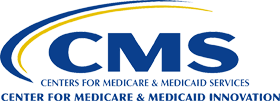Health Care Innovation Awards: Missouri
Notes and Disclaimers:
- Projects shown may also be operating in other states (see the Geographic Reach)
- Descriptions and project data (e.g. gross savings estimates, population served, etc.) are 3 year estimates provided by each organization and are based on budget submissions required by the Health Care Innovation Awards application process.
- While all projects are expected to produce cost savings beyond the 3 year grant award, some may not achieve net cost savings until after the initial 3-year period due to start-up-costs, change in care patterns and intervention effect on health status.
THE CURATORS OF THE UNIVERSITY OF MISSOURI
Project Title: “Leveraging Information Technology to Guide High Tech High Touch Care (LIGHT2)”
Geographic Reach: Missouri
Funding Amount: $13,265,444
Estimated 3-Year Savings: $16,950,358
Summary: The Curators of the University of Missouri are receiving an award to provide enhanced primary care to Medicare and Medicaid beneficiaries receiving primary care within the University of Missouri Health System, many of them chronically ill. The program will use advanced health information technology, evidence-based treatment planning, and a specialized workforce to coordinate care for both patients and the existing health care team. Through support for disease self-management, improved delivery system design, focus on preventive care, and better decision-making tools, the intervention will strengthen primary care, reduce specialist referrals and the need for acute care, and improve patients' health.
Over a three-year period, The Curators of the University of Missouri's program will train an estimated 420 workers and will create an estimated 30 jobs. The new workforce will include a project coordinator, a business manager, 3 health information analysts and 18 health care coordinators.
FEINSTEIN INSTITUTE FOR MEDICAL RESEARCH
Project Title: “Using care managers and technology to improve the care of patients with schizophrenia”
Geographic Reach: Florida, Colorado, Michigan, Minnesota, Missouri, New Hampshire, New Mexico, New York, Oregon
Funding Amount: $9,380,855
Estimated 3-Year Savings: $10,080,000
Summary: The Feinstein Institute for Medical Research is receiving an award to develop a workforce that is capable of delivering effective treatments, using newly available technologies, to at-risk, high-cost patients with schizophrenia. The intervention will test the use of care managers, physicians, and nurse practitioners trained to use new technology as part of the treatment regime for patients recently discharged from the hospital at community treatment centers in nine states. These trained providers will educate patients and their caregivers about pharmacologic management, cognitive behavior therapy, and web-based/home-based monitoring tools for their conditions. This intervention is expected to improve patients’ quality of life and lower cost by reducing hospitalizations.
Over a three-year period, the Feinstein Institute for Medical Research will retrain nurse practitioners, physician assistants, physicians, and case managers to use newly available mental health protocols and health technology resources.
RUTGERS, THE STATE UNIVERSITY OF NEW JERSEY (THE CENTER FOR STATE HEALTH POLICY)
Project Title: “Sustainable high-utilization team model”
Geographic Reach: California, Colorado, Missouri, Pennsylvania
Funding Amount: $14,347,808
Estimated 3-Year Savings: $67,719,052
Summary: Rutgers, The State University of New Jersey, is receiving an award to expand and test a team-based care management strategy for high-cost, high-need, low-income populations served by safety-net provider organizations in Allentown, PA, Aurora, CO, Kansas City, MO, and San Diego, CA. Led by Rutgers’ Center for State Health Policy, the project will use care management teams (including nurses, social workers, and community health workers) to provide clients with patient-centered support that addresses both health care needs and the underlying determinants of health. Teams will assist patients in filling prescriptions, finding housing or shelter, applying for health coverage or disability benefits, handling legal issues, finding transportation, treating depression, managing chronic illness, and coordinating appropriate specialty care. After patients are stabilized, the care management team will transition them to local primary care medical homes. By improving beneficiaries’ access to ambulatory medical and social services, the project will improve patient outcomes and reduce preventable hospital inpatient and emergency room utilization.
Over a three-year period, Rutgers’ program will train an estimated 155 workers and will create an estimated 43 jobs. The new workforce will include community health workers.
UNIVERSITY OF NORTH TEXAS HEALTH SCIENCE CENTER
Project Title: "Brookdale Senior Living (BSL) Transitions of Care Program"
Geographic Reach: Alabama, Arizona, California, Colorado, Connecticut, Delaware, Florida, Georgia, Idaho, Illinois, Indiana, Iowa, Kansas, Kentucky, Louisiana, Massachusetts, Michigan, Minnesota, Mississippi, Missouri, Nevada, New Jersey, New Mexico, New York, North Carolina, Ohio, Oklahoma, Oregon, Pennsylvania, South Carolina, Tennessee, Texas, Virginia, Washington, Wisconsin
Funding Amount: $7,329,714
Estimated 3-Year Savings: $9,729,702
Summary: The University of North Texas Health Science Center (UNTHSC), in partnership with Brookdale Senior Living (BSL), is receiving an award to expand and test the BSL Transitions of Care Program which is based on an evidenced-based assessment tool called Interventions to Reduce Acute Care Transfers (INTERACT) for residents living in independent living, assisted living and dementia specific facilities in Texas and Florida. In addition, community dwelling older adults who receive BSL home health services will be included in the Transitions of Care Program. Over the course of the award the program will expand to other states where BSL communities are located. The program will employ clinical nurse leaders (CNLs) to act as program managers. CNLs will train care transition nurses and other staff on the use of INTERACT and health information technology resources to help them identify, assess, and manage residents' clinical conditions to reduce preventable hospital admissions and readmissions. The goal of the program is to prevent the progress of disease, thereby reducing complications, improving care, and reducing the rate of avoidable hospital admissions for older adults.
Over a three-year period, the University of North Texas Health Science Center's program will train an estimated 10,926 workers and create an estimated 97 jobs for clinical nurse leaders and other health care team members.

